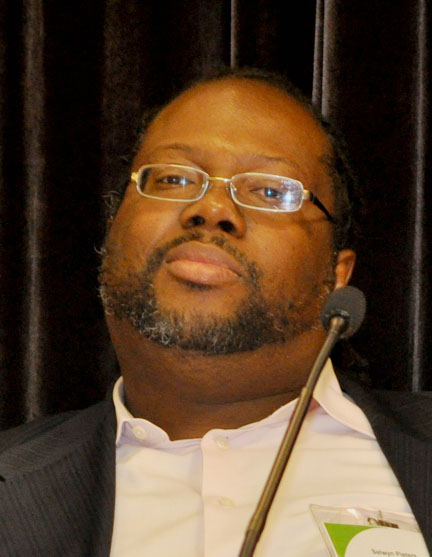Anyone who wants to become a Canadian citizen will have to continue swearing allegiance to the Queen, ruled the Ontario Court of Appeal.

In
McAteer v. Canada (Attorney General), a three-judge panel ruled the oath of allegiance prospective citizens must take during citizenship ceremonies did not violate the Charter of Rights and Freedoms.
“I hold that the purpose of the oath is not to compel expression but to obtain a commitment to our form of government from those wishing to become Canadian citizens,” wrote Justice Karen M. Weiler.
The suit was brought by three permanent residents, Michael McAteer, Dror Bar-Natan, and Simone Topey, who refuse to take the citizenship oath because they believe it violate their rights to freedom of conscience, religion, expression, and equality under the Charter.
“The clients believe that swearing an oath to the Queen is repugnant,” says Selwyn Pieters, who along with Peter Rosenthal, Michael Smith, and Reni Chang, represented the appellants in the case.
The appellants are against the oath for a variety of reasons. McAteer is a republican who said in a deposition that “taking an oath of allegiance to a hereditary monarch who lives abroad would violate [his] conscience, be a betrayal of [his republican heritage] and impede [his] activities in support of ending the monarchy in Canada.” Bar-Natan opposed the oath because he regarded it as a symbol of a class system, while Topey, who is rastafarian, said the oath violated her religious beliefs.
The oath itself requires all new Canadians to swear allegiance to “Her Majesty Queen Elizabeth the Second, Queen of Canada, Her Heirs, and Successors.”
The appellants argued the court should take a “plain-meaning interpretation” of the oath and recognize that new citizens are pledging allegiance to the Queen as a person.
“The appellants argued that the Queen came from an inherited lineage and that inherited lineage oppressed other people and was responsible for slavery among other things,” says Pieters. “And indeed, as the appellants argued, the Queen is a living, feeling being, and so are her heirs and successors.”
The court disagreed and instead examined the issue through constitutional history of Canada going back to 1790.
“A ‘plain-meaning’ approach to interpretation is inappropriate because it fails to recognize the history and the context in which the oath exists in this country,” wrote Weiler.
The appeal court determined the oath to the Queen was not an oath to a particular person, but rather to the Canadian system of government.
“The oath to the Queen of Canada is an oath to our form of government as symbolized by the Queen as the apex of our Canadian parliamentary system of constitutional monarchy,” wrote Weiler.
Philippe Lagassé, an associate professor of public and international affairs at the University of Ottawa, says the ruling provides a clear understanding of the institution of the Crown.
“It seems to hold up with a lot of our understanding of this office as an institution within the constitutional structure and it brings back the need to not see the monarchy simply as a person and therefore to try and understand it as a more complex type of institution,” he says.
According to Lagassé, previous rulings dealing with royal succession, would often do a poor job of defining what exactly “the Queen” is.
“Are we talking about a legal person, are we talking about a natural person? If we refer to the Queen, does that mean the same person as in the U.K.? So there seems to be a lack of conceptual clarity on these issues and it’s fairly pertinent given the challenge to the royal succession case in Quebec these days.”
McAteer is the latest case in a long battle about the citizenship oath that started when Charles Roach, a prominent Ontario lawyer, took the government to court in 1992. Roach, who passed away in 2012, never became a Canadian citizen because of his refusal to take the oath.
Pieters, who articled under Roach, got involved with the case because of his mentor. He and the other lawyers are working pro bono.
“I think it’s a fitting memory for him because he spent most of his life in Canada, contributed so much and unfortunately he was never able to obtain citizenship before he died.”
Pieters says the legal team will be strongly recommending to their clients that they seek leave to appeal to the Supreme Court of Canada.

 In McAteer v. Canada (Attorney General), a three-judge panel ruled the oath of allegiance prospective citizens must take during citizenship ceremonies did not violate the Charter of Rights and Freedoms.
In McAteer v. Canada (Attorney General), a three-judge panel ruled the oath of allegiance prospective citizens must take during citizenship ceremonies did not violate the Charter of Rights and Freedoms.